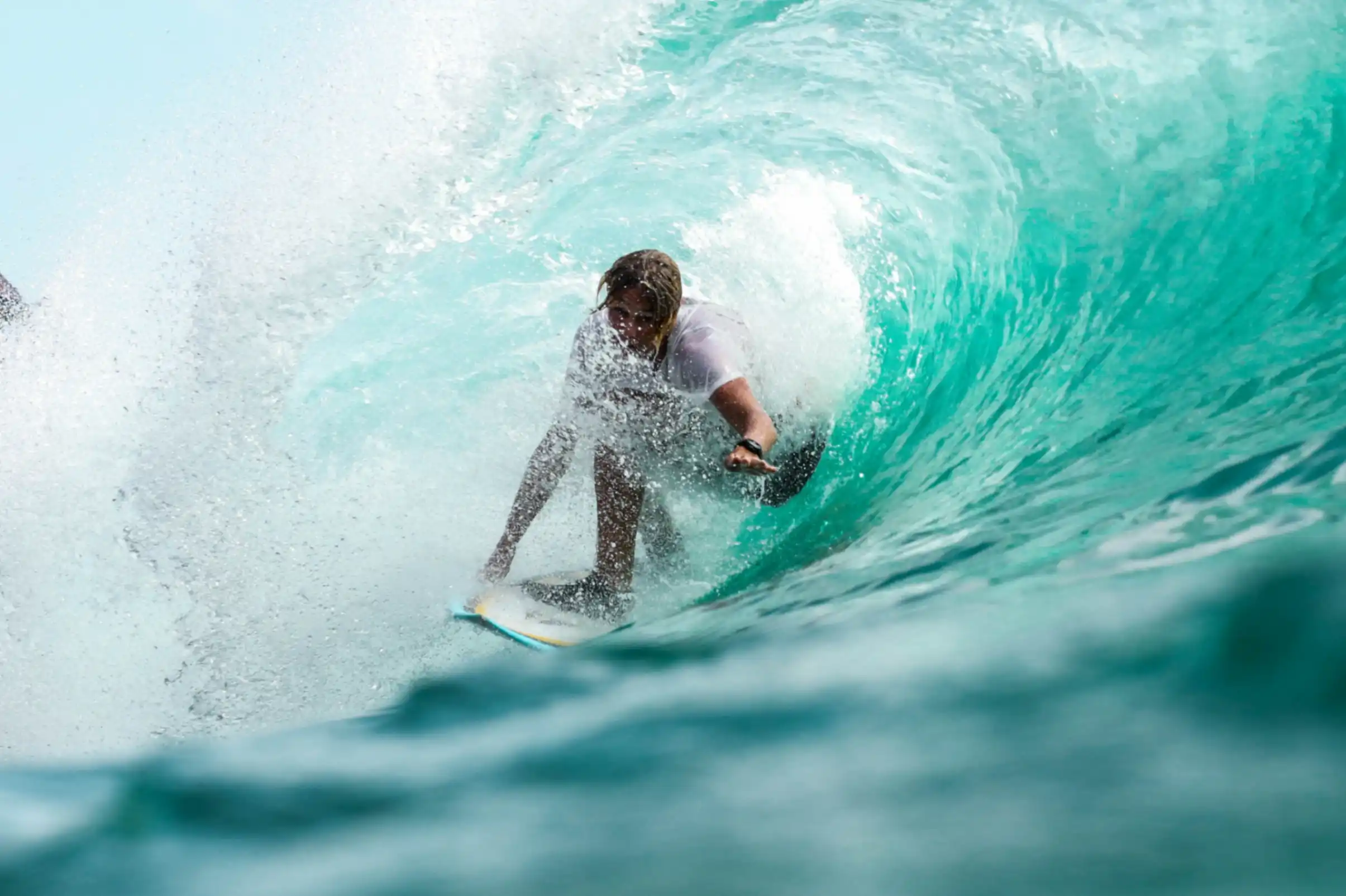icon
Although the rates of injury in recreational surfing are relatively low when compared with many other sports, recent research suggests that 80% of competitive surfers will suffer a surfing injury at some time in their life, and that 60% of competitive surfers sustain at least one surfing injury per season.
Surfing injuries are most commonly contact injuries (lacerations or contusions) occuring by hitting a surfboard (67%) or the sea floor (17%).
Most common surfing injuries:
Lacerations (cuts) & Bruises (contusions) Concussion & head injuries Shoulder pain Back pain FracturesOf these injuries, the lower extremity (foot, ankle, knee) is more commonly affected (40%), followed by the head and neck (37%).
Older surfers, expert surfers and those surfing larger waves are at a higher risk of sustaining injury.
Messages to paddle out with!
1. Choose your surf spots carefully:
Avoid crowds: Surfing crowded spots can increase your chances of getting hit by another riders board. You can’t always control what other people are going to do! Learn to navigate busy lineups by watching before paddling out, and being aware of your surroundings and lineup etiquette. Surf within your scope: Know your limits. Avoid surfing over shallow rock and reef if you’re not confident in taking off. Don’t try a backflip on a 6ft wave over reef when someone is about to duck-dive in front of you! Trial new manoeuvres in safe surf first and gradually progress. Gradually increase the size of wave you are riding to build skill and competence in larger surf.Learn how to fall to avoid your board and the sea floor
Despite best measures, sometimes surfers do fall! Whether it’s because of suboptimal wave selection or an unsuccessful manoeuvre, learning when to pin drop, dive, jump over, or kick out is a skill that comes with experience and can reduce your risk of hitting your board or someone else’s board!
Train to surf and include weight bearing exercises
Prevent shoulder and back pain by ensuring your body is fit enough, flexible enough and strong enough to cope with the demands of paddling, duck diving and surfing. Including weight-bearing exercises can produce better strength responses than water-based training, and also strengthens your bones to reduce your fracture risk! Coast Sport can prescribe individualised surf training programs to reduce your risk of injury.
Book an appointment at Coast Sport by calling (02) 4356 2588 or book online via the button below.
Disclaimer: The content on this website is for informational purposes only. Do not rely or act upon information from www.coastsport.com.au without seeking professional medical advice. Do not delay seeing a doctor if you think you have a medical problem or injury.
Thanks to Coast Sport Physiotherapist Brett for preparing this blog. You can find out more about Brett here.





 Helping the Central Coast Feel Well, Move Well and Perform Well!
Helping the Central Coast Feel Well, Move Well and Perform Well!